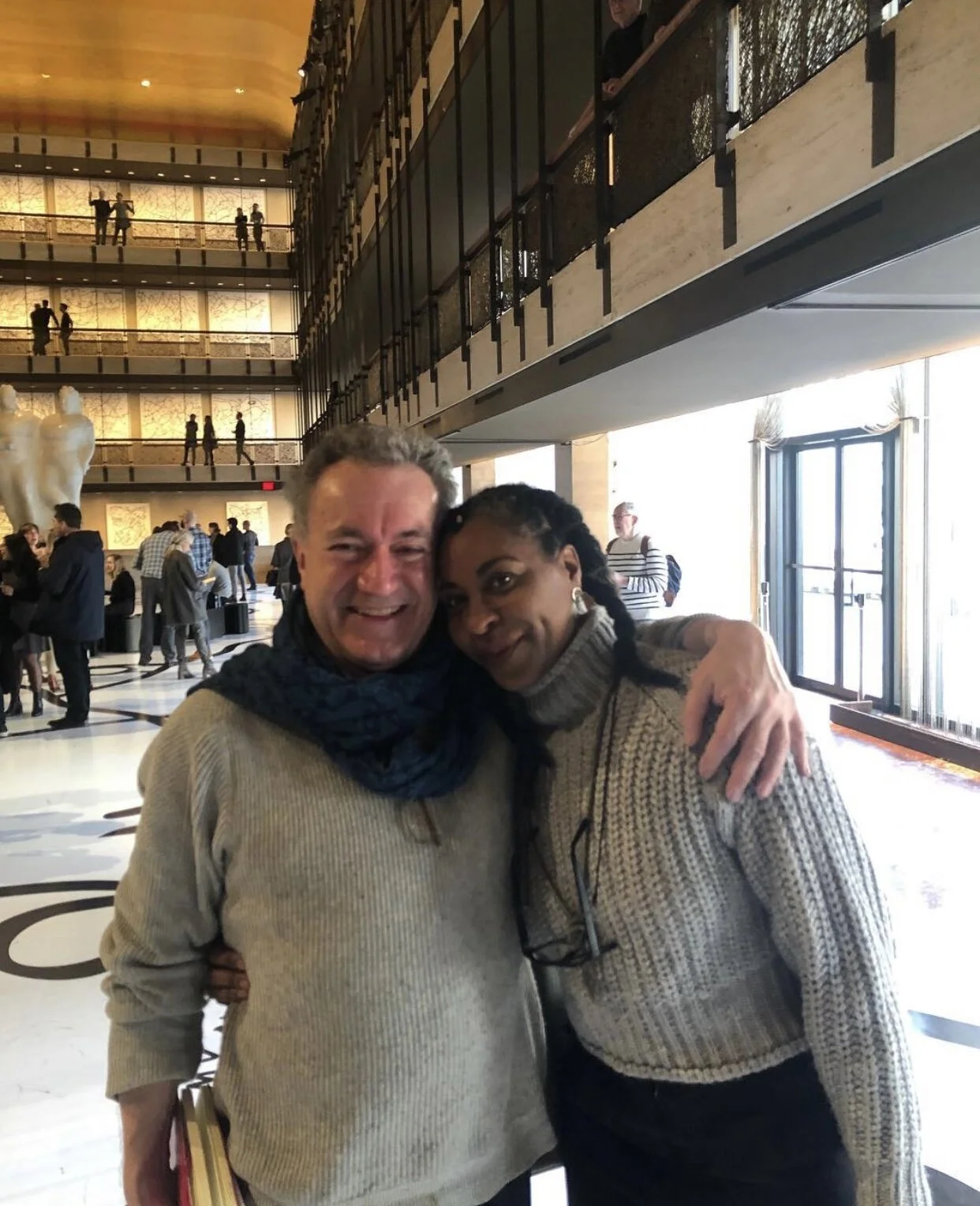Theresa Ruth Howard: Black History Month in Dance, 2021
77. In this photograph, taken two years ago in the New York State Theater, the woman in the foreground with my arm around her is Theresa Ruth Howard. Any Black History Month in dance connects to her in so many ways: she has made the subject of black dancers in ballet her principal concern in recent years. She danced with Dance Theatre of Harlem; she was a founder member of Armitage Gone! Dance. As a contributing editor to “Dance Magazine”, she greatly raised the temperature and historical acuity of thought about black dancers in ballet at the time that Misty Copeland first danced Odette-Odile and became a principal of American Ballet Theatre. On Instagram, her @mobballet Memoirs of Blacks in Ballet, with 11.1K followers (fewer than it deserves) does all the year round what I have sometimes attempted during this single month: to add to our knowledge of the black dancers who have worked in ballet. The motto she gives to @mobballet — Mobballet.org - is “We are only as strong as our stories.”
This makes Theresa sound like a cheerleader for black dancers. She’s also something I find more valuable: a tough-minded thinker who, with passion, anger, and intelligence, shakes the dance firmament.
She and I exchanged positive emails in summer 2018. I take the liberty of quoting from one of hers:-
“It is said that, When we know better we do better. For me, it is less important what you have or have not done before, rather what you choose to do once you know…
“I think that seeking to educate yourself in the various cultural dance genres is certainly a great place to start. What you have probably already gleaned through your experience thus far is that there is nothing in African American life (especially dance) that is not influenced (positively or negatively) by systematic racism and the mechanisms employed to uphold it. African Americans’ past and present are completely and totally a by-product of the systematic oppression that has been inflicted upon them since they were forcibly delivered to these shores. Everything that we are is a product of our ingenuity and will to survive — how we walk, talk, what we eat, what and how we create…. In my opinion if one does not have an idea of, or take into consideration the historical cultural landscape one will not be able to truly enter, or begin to fully appreciate the work. (But this is a deeper discussion.)
“In a Pointe Magazine article interview with Kate Lydon about the responsibility of the critic, you stated: ‘Criticism of the arts is usually the first stage of artistic history — the stage in which a work of art begins to fall into some wider context.’
“I agree wholeheartedly, specifically where it pertains to African Americans - and the work of artists of color in America. The critique of such work devoid of that historical and cultural context often reads as is reductive and incomplete.”
Because I moved back to my homeland at the end of 2019, Theresa and I have not as yet developed the colloquy that I know we both wanted. But her subject is not exclusive to America, and mine is not to Britain. I hope our paths cross again; but I meanwhile keep learning from the courses she charts. (And I love her dimples.)
Tuesday 16 February
Theresa Ruth Howard, with my arm around her: February 2019, New York State Theater.
